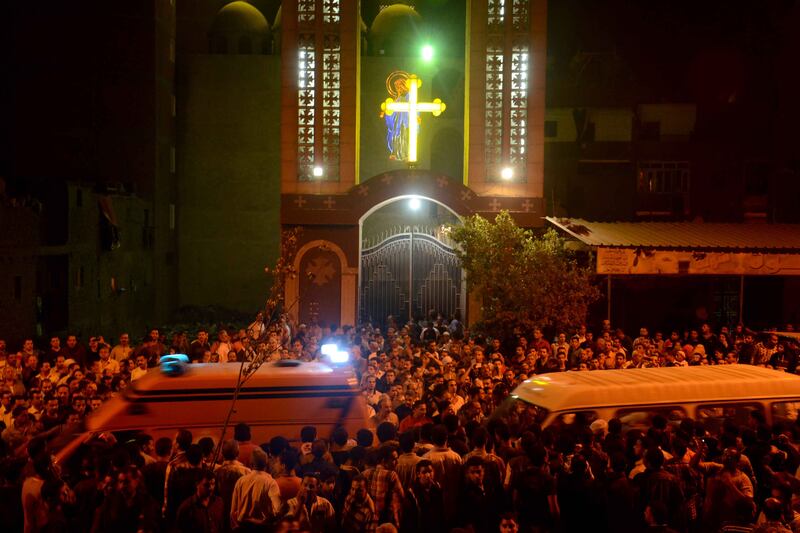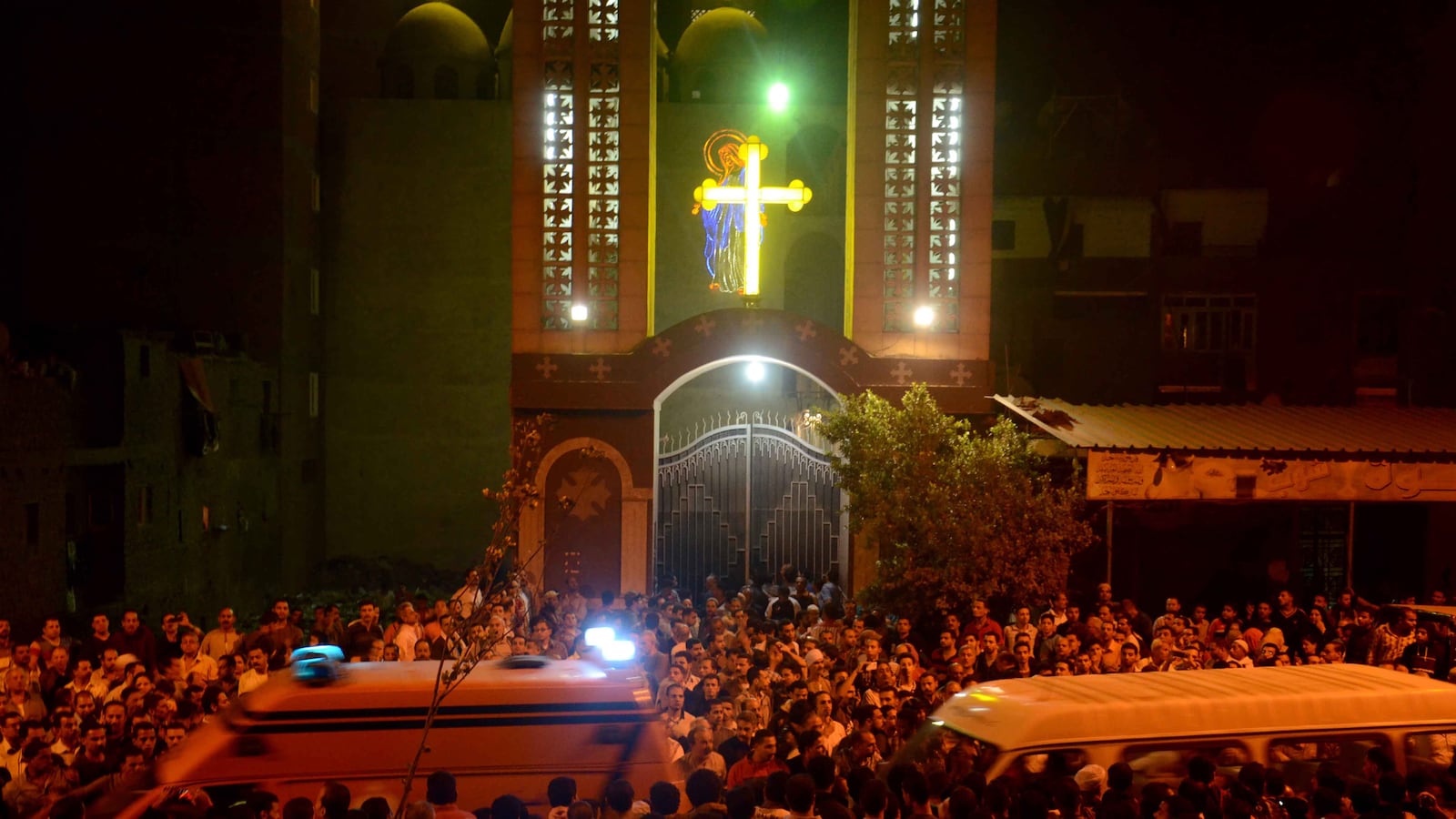On Sunday night, two men on a motorcycle—a driver and a shooter—sprayed bullets into a wedding celebration at a Coptic Christian church in Cairo. They wounded seventeen people and killed four, among them an eight-year-old girl named Miriam Ashraf and a 12-year-old name Miriam Nabil.

Protests, repression, chaos and violence have become so common in Egypt over the last two and a half years that it’s possible the death of the little Miriams will go down as just two more tick-marks in the collateral damage column of the ongoing Egyptian revolution.
But there comes a time in every upheaval when something happens that is so revolting, so alien to a society’s fundamental sense of right and wrong, that it radically changes the public mood.
“Enough!” said Father Dawoud, the gray-bearded, black-robed priest at the Virgin Mary church where the attack took place. “People are getting sick and tired of this,” he said. “All of Egypt is being targeted, not just the Christians.” And many Egyptians, both Muslims and Christians, who have hoped that the political turmoil would bring a tolerant and peaceful society, share those sentiments.
There is a precedent from another violent period in Egypt’s past for condemning groups responsible for wanton violence but whether it will be invoked in today’s Egypt is far from certain.
Twenty years ago, the nation was at another crossroads. Radical jihadist groups led by Ayman al-Zawahiri and others were waging a systematic campaign of terror to overthrow the Mubarak regime. The ruthless imprisonment and torture of real and suspected members of those groups created sympathy for them, as did resentment of the dictatorship that had been ruling for more than a dozen years at that point.
Then, in November 1993, Zawahiri’s group set off a car bomb targeting Prime Minister Atef Sidqi. The politician’s armored vehicle kept him safe but the blast was right outside a girls’ school. It injured several of the students and it killed 12-year-old Shayma Abdel-Halim.
“Her death outraged Egyptians,” Lawrence Wright wrote in The Looming Tower: Al-Qaeda and the Road to 9/11. “Little Shayma’s death captured people’s emotions as nothing else had. When her coffin was borne through the streets of Cairo, people cried, ‘Terrorism is the enemy of God!’”
Zawahiri was so shaken by the public reaction to the death of that one schoolgirl that he offered to pay blood money to her family. “The unintended death of this innocent child pained us all, but we were helpless and we had to fight the government,” Zawahiri wrote in his memoir. Forced into exile, he joined with Osama bin Laden and Al Qaeda and now runs that too-well-known international organization. But he and his group were discredited in Egypt for a generation or more.
The same might happen to the disparate gangs now waging a rag-tag campaign of terror against the current Egyptian strongman, Gen. Abdel Fattah al-Sisi who overthrew the elected President Mohamed Morsi last summer.
Since taking power, the al-Sisi military regime has targeted members of the deposed Morsi government and its supporters in the Muslim Brotherhood in a campaign of violence and repression that has been savage, unrelenting, and steadily widening until it threatens even moderate protestors who have nothing to do with the Brotherhood at all.
In response, thugs acting anonymously or identifying themselves indirectly with the pro-Morsi factions have carried out widespread attacks on targets associated with the Al-Sisi regime or its perceived supporters. Sometimes soldiers are killed. But the softest targets—who are given, very little protection—are members of the country’s ancient Coptic Christian minority who are presumed to support al-Sisi and oppose the Muslim Brotherhood.
Just this morning, a jihadist group in the Sinai, Ansar Beit-Al Maqdis, issued a statement claiming responsibility for a car bombing on Saturday in the port city of Ismailia that took at least six lives. In its statement it blamed army intelligence for fueling a war against Islamists that only benefits “Christians and Jews.”
The identities of the two shooters at the Virgin Mary church are not known, nor is their affiliation. The obvious suspects are radical Islamists, but in Egypt the logic of conspiracy often trumps common sense and leaves open the possibility in many minds that the killers were agents provocateurs serving the interests of the Al-Sisi regime.
Probably it will take more than the death of two little girls to turn the Egyptian people massively and decisively against the remnants of the Islamists, and demand of Al-Sisi a better, more peaceful strategy for keeping order.
But one can hope that from this evil some good is possible, and that those two young girls did not die for nothing.
—With reporting from Sophia Jones in Cairo





